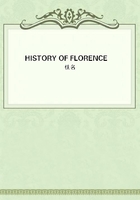
第70章
These words gave so great offense, that being communicated to the heads of the government, Donato was summoned, and having appeared, the truth was proven by those to whom he had intrusted the message, and he was banished to Barletta. Alamanno and Antonio de' Medici were also banished, and all those of that family, who were descended from Alamanno, with many who, although of the inferior artificers, possessed influence with the plebeians. These events took place two years after the reform of government effected by Maso degli Albizzi.
At this time many discontented citizens were at home, and others banished in the adjoining states. Of the latter there lived at Bologna Picchio Cavicciulli, Tommaso de' Ricci, Antonio de' Medici, Benedetto degli Spini, Antonio Girolami, Cristofano di Carlone, and two others of the lowest order, all bold young men, and resolved upon returning to their country at any hazard. These were secretly told by Piggiello and Baroccio Cavicciulli, who, being admonished, lived in Florence, that if they came to the city they should be concealed in their house;from which they might afterward issue, slay Maso degli Albizzi, and call the people to arms, who, full of discontent, would willingly arise, particularly as they would be supported by the Ricci, Adimari, Medici, Manelli, and many other families. Excited with these hopes, on the fourth of August, 1397, they came to Florence, and having entered unobserved according to their arrangement, they sent one of their party to watch Maso, designing with his death to raise the people.
Maso was observed to leave his house and proceed to that of an apothecary, near the church of San Pietro Maggiore, which he entered.
The man who went to watch him ran to give information to the other conspirators, who took their arms and hastened to the house of the apothecary, but found that Maso had gone. However, undaunted with the failure of their first attempt, they proceeded to the Old Market, where they slew one of the adverse party, and with loud cries of "people, arms, liberty, and death to the tyrants," directed their course toward the New Market, and at the end of the Calimala slew another. Pursuing their course with the same cries, and finding no one join them in arms, they stopped at the Loggia Nighittosa, where, from an elevated situation, being surrounded with a great multitude, assembled to look on rather than assist them, they exhorted the men to take arms and deliver themselves from the slavery which weighed so heavily upon them; declaring that the complaints of the discontented in the city, rather than their own grievances, had induced them to attempt their deliverance. They had heard that many prayed to God for an opportunity of avenging themselves, and vowed they would use it whenever they found anyone to conduct them; but now, when the favorable circumstances occurred, and they found those who were ready to lead them, they stared at each other like men stupefied, and would wait till those who were endeavoring to recover for them their liberty were slain, and their own chains more strongly riveted upon them; they wondered that those who were wont to take arms upon slight occasions, remained unmoved under the pressure of so many and so great evils; and that they could willingly suffer such numbers of their fellow-citizens to be banished, so many admonished, when it was in their power to restore the banished to their country, and the admonished to the honors of the state. These words, although full of truth, produced no effect upon those to whom they were addressed; for they were either restrained by their fears, or, on account of the two murders which had been committed, disgusted with the parties. Thus the movers of the tumult, finding that neither words or deeds had force sufficient to stir anyone, saw, when too late, how dangerous a thing it is to attempt to set a people free who are resolved to be slaves; and, despairing of success, they withdrew to the temple of Santa Reparata, where, not to save their lives, but to defer the moment of their deaths, they shut themselves up. Upon the first rumor of the affair, the Signory being in fear, armed and secured the palace; but when the facts of the case were understood, the parties known, and whither they had betaken themselves, their fears subsided, and they sent the Capitano with a sufficient body of armed men to secure them. The gates of the temple were forced without much trouble; part of the conspirators were slain defending themselves; the remainder were made prisoners and examined, but none were found implicated in the affair except Baroccio and Piggiello Cavicciulli, who were put to death with them.